Valencia
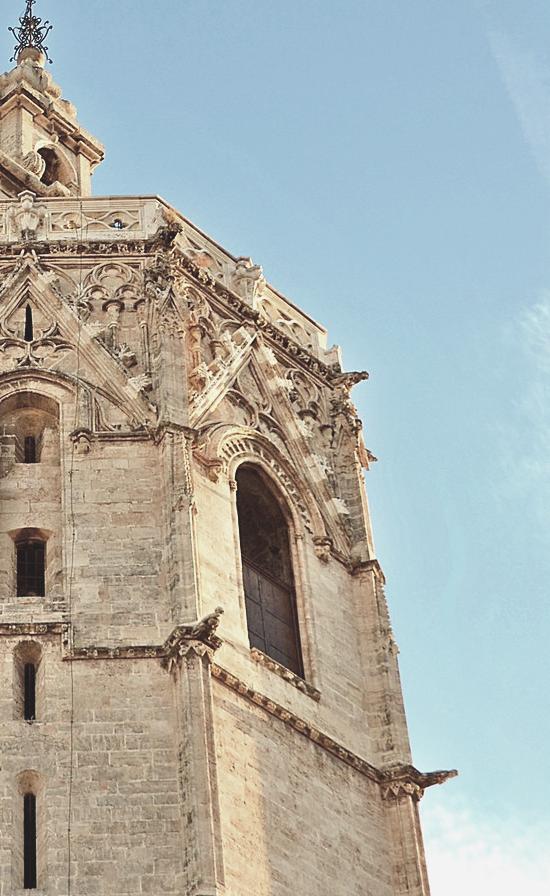
_PREPARE TO GO GUIDE

Best practices in preparing your stuff and yourself for the




Best practices in preparing your stuff and yourself for the


Index page 1
Weather page 2
Travel documents page 3
Risk Management page 4
The unplugged challenge page 7
Communication page 8
Gifts page 9
Navigating cultural differences page 11
Language learning page 12
Mentally & Emotionally preparing ` page 15
Useful resources ` page 15
Packing guidelines page 16
The Valencia region generally experiences a Mediterranean climate. Overall, the Valencia region is known for its pleasant climate with more than 300 sunny days a year. Here are some typical weather characteristics:
Temperature: Valencia enjoys mild winters and hot, dry summers. During the summer months (June to September), temperatures can often exceed 30°C (86°F) and occasionally reach into the mid to high 30s°C (90s to 100s°F). Winters (December to February) are much milder, with daytime temperatures typically ranging from 10°C to 20°C (50°F to 68°F). At night can drop to 2°C (35°F).
Rainfall: The Valencia region has a semiarid climate with most of its rainfall occurring in the fall and spring. Rain is scarce, Valencia city has an average of 44 days of rain a year.
Worldweather.org provides detailed information:
Winds: The region can experience winds known as the "Levante" and the "Poniente. " The Poniente wind is a hot, dry wind that originates from the inlands (Castilla) and can bring warmer temperatures and reduced humidity. The Levante wind, on the other hand, is a cooler and moister wind that comes from the sea and can provide relief from the summer heat. The windiest part of the year is autumn and winter.
Humidity: The coastal areas of the Valencia region, including the city of Valencia itself, tend to have higher humidity levels, especially during the summer.
Microclimates: The Valencia region is diverse, and weather conditions can vary. The coast tends to have milder temperatures than the inland areas. The mountainous areas to the west can also have cooler and wetter conditions, making them a popular destination for outdoor activities year-round.
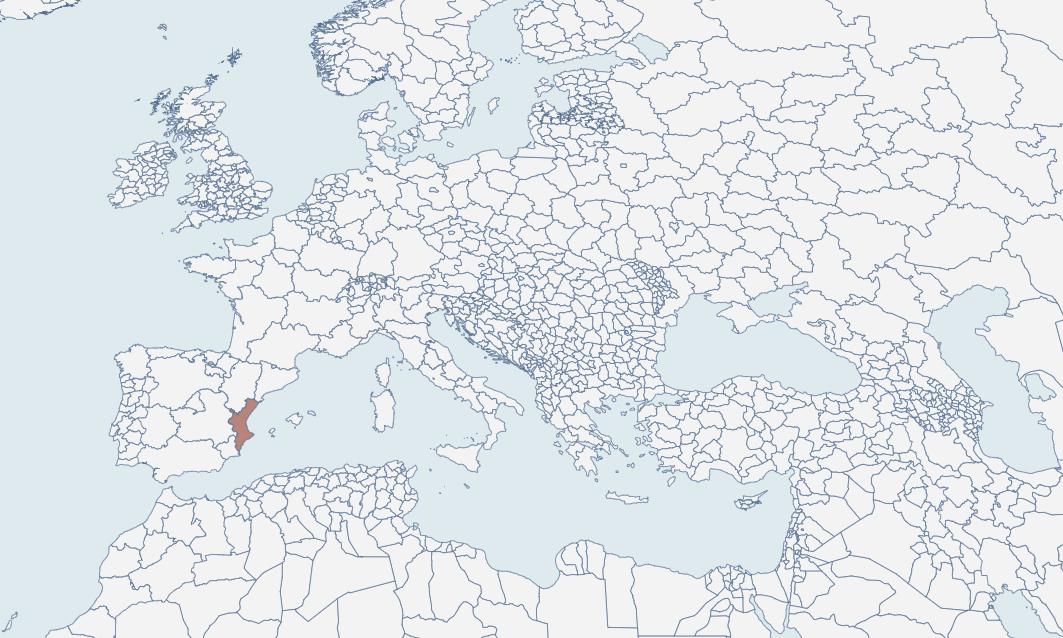
Below you will find varied topics and specific pieces of information that require your careful attention.
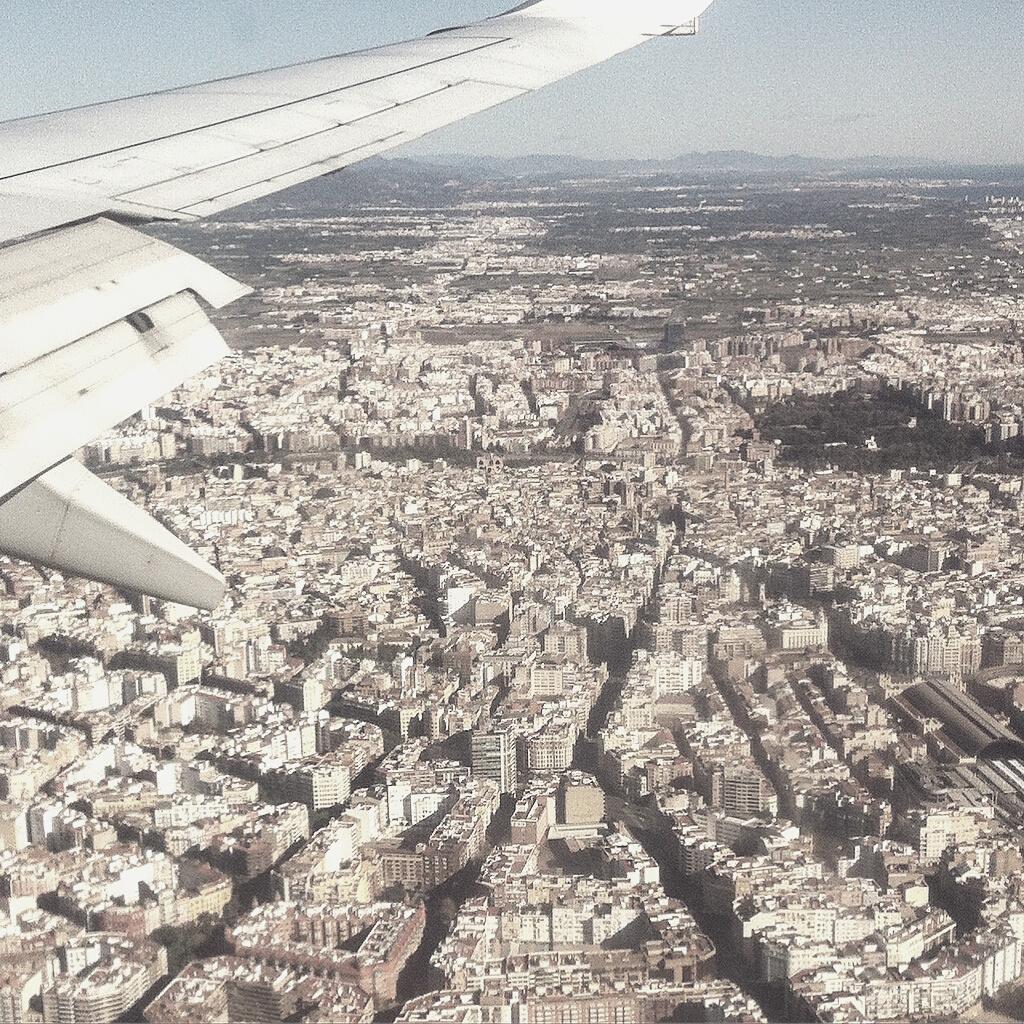
If you are a US or Canadian citizen, you will need:
• A valid passport – please make sure that your passport is valid for 6 months after your return date to your home country
If you are not citizen of the country where your school resides, you will need:
Your Green Card for re-entering your home country.
Visa and inoculation requirements vary according to country of nationality. If you do not hold a US or Canadian passport, please do your research ahead of time by visiting the website of the Spanish General Consulates in Canadá or the Spanish General Consulates in US
Drop us a line if you have any questions.
We’re happy to help you!
Please keep in mind that you are traveling as a tourist. When you fill out forms or pass through passport control, please indicate that you are a tourist.
Please make sure that your standard country vaccinations are up-to-date. These vaccinations (including but not limited to):
Chicken Pox (Varicella), Diphtheria-PertussisTetanus (DPT), Measles- Mumps- Rubella (MMR), Polio, Shingles, Influenza, COVID-19. The most current information on inoculations for travel within Spain can be found at cdc.gov Before taking any shots, please consult with your doctor. Try to take any shots 4-6 weeks before departure. Some vaccines take time to become effective in your body or need to be given in a series
For Spain, the CDC recommends these inoculations:
Routine Vaccines (mentioned above)
Hepatitis A
Hepatitis B
Measles
Rabies
All participants are required to have a travel insurance coverage for the duration of the program.
Valencia city counts with 5 private hospitals and 5 public hospitals. There are English speaking general doctors across the road from our hotel in MyMedica clinic.

When in Siete Aguas, the homestay village, the Requena hospital is 15min highway drive (17Km = 10 miles).
When in Chella, the closest hospital is Xàtiva Hospital, 23min drive.
Each of our instructor will carry an emergency cell phone that operates in all urban areas and most of the remote areas of the Valencia program.
In the case of an emergency, we will contact the emergency contact listed on your application form and the emergency contact at the partner school In coordination with the school, we may also send news through an email list.
We strive to responsibly manage risks. Our itineraries minimize highway travel and maximize immersion in rural communities that we know well.
We update our risk management protocols, integrate feedback into program design, and invest in safety and communication equipment. Despite these efforts, La Meridional cannot guarantee safety nor can it eliminate the inherent and other risks of international student travel.
For information regarding program activities and associated risks, risk management, and student and parent responsibilities, please contact our office: info@lameridional.net
If you are pro-active about safeguarding your heath, you can avoid many of the health challenges that often come with international travel Although there are no guarantees, taking these simple precautions will improve your chances of staying healthy.
-Gastro-intestinal problems are a perennial challenge for travelers. They can be caused by bacteria, virus or parasites, and are sometimes just the result of stomachs being unaccustomed to local food. La Meridional (LM) has a basic approach to mitigate these problems:
Probiotics. We recommend you take a daily “probiotic,” starting at least one week before departure and continue until the program is over.
Probiotics, such as Jarro- Dophilus, Lactobacillus or Papaya Enzyme, are dietary supplements that contain beneficial bacteria and yeast These overthe-counter supplements help stomachs adjust to new overseas bacteria.
Water. We ask that you only drink water from sources that has either been purchased or approved by LM, or by your homestay family. The most common way to get sick is to drink water that has not been completely purified. We ask that you bring a reusable 1 liter water bottles, in order to limit plastic waste
-Upon arrival overseas, we will discuss critical strategies for staying healthy. We ask that participants:
Wash their hands regularly with soap and warm water if possible, especially before eating and after going to the bathroom Hands are the number one transmitter of the bacteria and viruses that cause gastro-intestinal problems! (rub vigorously both sides of your hands for at least 20 seconds). Do not share water bottles, food or lip balm with anyone else. By not sharing these things, you are not being rude – you are keeping yourself and your friends healthy. If you have to share food, pour out of a bag into the person’s hand.
Use hand sanitizer whenever possible but without causing offense to local hosts Sanitizer is a temporary solution – not a replacement to washing hands with soap.
Do not eat from street vendors. Avoid cold sauces such as mayonnaise, salad dressing or salsas, which are usually raw and made by hand.
-Asthma. If you have a history of asthma, sportsinduced or otherwise, please bring two (2) albuterol inhalers, one for you to carry and one for your instructors to carry
-Allergy. If you have a history of an anaphylaxis allergy to nuts, bees, etc., please bring two (2) epi-pens. Please tape Benadryl to each epi-pen. Our instructors will also have epi-pens and Benadryl in the first aid kits
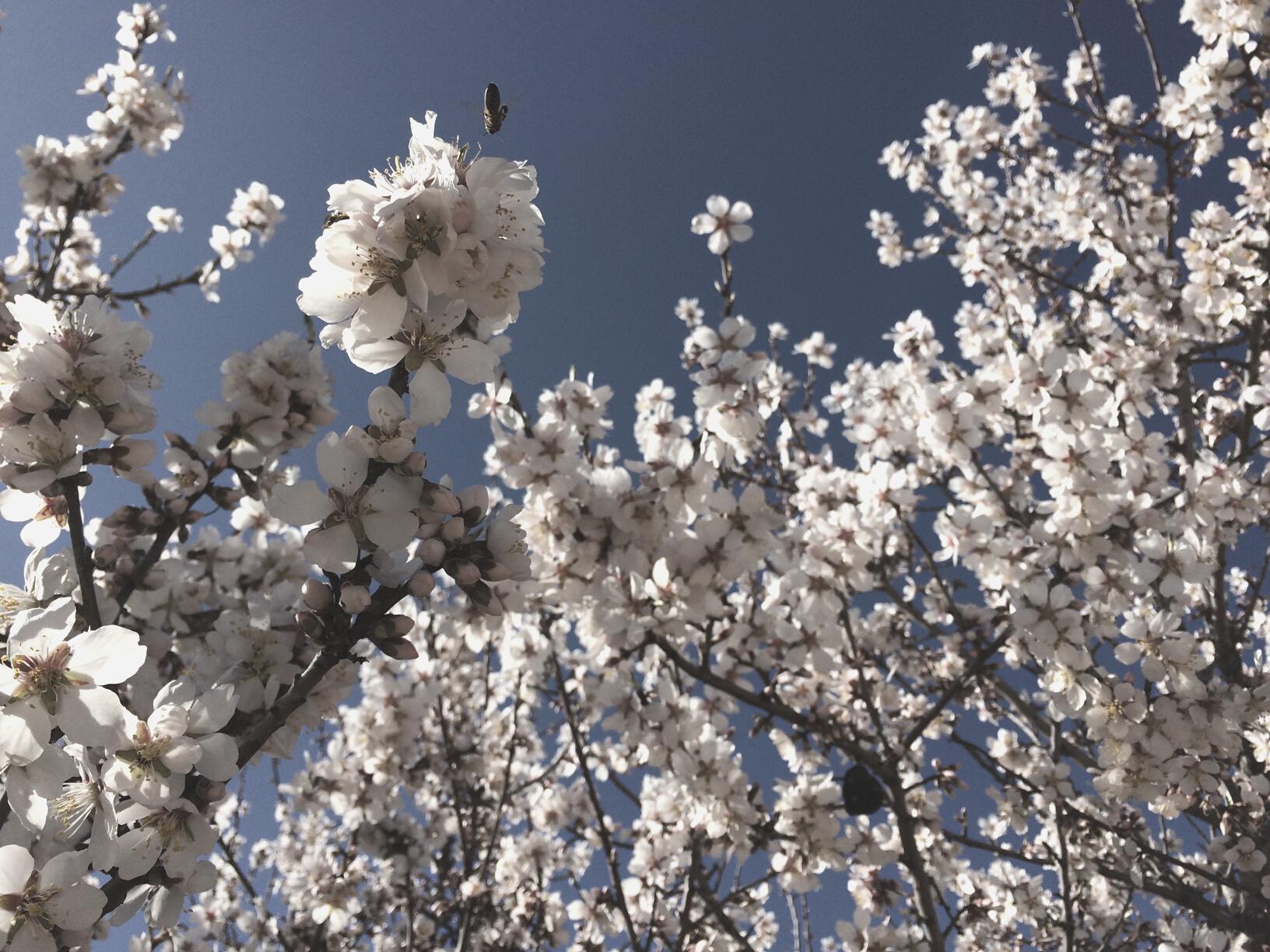
-stinging & biting insects are part of the mediterranean biodiversity as well. In this itinerary we are not facing challenges as in the tropical areas, but still we can find mosquito bites, ticks, fleas or sand flies bites in our skin Preventive measures:
Use insect repellant between 25-35% DEET . The repellent should be applied to all exposed areas of the body every five hours, except for sensitive areas such as eyes, mouth, wounds, irritated skin, etc. DEET is effective against most insects and is a safe repellent.
Mosquitoes and other biting flies are most present at dawn and dusk Cover up with lightweight, lightcolored long pants, long-sleeved shirts, shoes, and socks. Avoid wearing sandals. Perform a full body check once a day to check for ticks and other biting insects.
Rabies is not a serious problem in the areas we will visit, but it is better to prevent, following the next steps:
Please do not to touch or play with local dogs or cats. The idea of dogs and cats as household pets is different in rural areas. You will encounter dogs and cats living in the streets. Although they may look very appealing, they are not accustomed to being petted and they have never visited a vet Please do not touch local farm animals, such as sheeps, rabbits or horses
The main threat while hiking in the mediterranean forest is the víbora snake (viperinae) It is very rear to find, indeed, our local coordinators have never seen one in their entire life. Their bites are rare, but potentially serious.

Below you will find varied topics and specific pieces of information that require your careful attention.

During a La Meridional (LM) program, we challenge all participants to take a break from using their cell phone and begin connected to the Internet and social media. A LM program is an amazing opportunity to unplug and immerse yourself in the moment and the people you are with. Students from past programs consistently reported that being unplugged from technology helped them
1) feel present during our programs.
2) build relationships with people from different cultures.
3) reach life-changing conclusions about themselves and the world!
We encourage you to let your family and friends know that you will be completely offline during your time overseas, and we encourage you to put an auto responder on your email. If there is an emergency message that you need to receive, or send, we will make sure that happens immediately through our instructors. You will not regret the decision to be unplugged!
You will need an adaptor for any plug from The Americas to Europe.
For more details please visit: whatplug.info
No personal electronics. Our experience is that iPods, iPads, iPhones, MP3 players, cell phones, movie/game devices and other personal electronics remove you from the overall program experience while also making them targets of theft. We encourage you to bring books and journals for downtime moments on the program.
No smart phones Phones will be collected by your faculty as we meet out LM instructors in the airport. Switch them off before handle them. The devices will be return before going through security in your way back home. Our experience has shown that it's hard not to use the apps, even if the original function was to take pictures only. Each LM instructor will be carrying a cell phone that can be used to call your home country in an emergency. Cameras are ok. We do ask that program participants be thoughtful about using a camera. Remember to always ask permission before taking a picture and to also understand that the act of taking a picture can often place a barrier between you and the people you are photographing.
We will set up a blog prior to the program, and email the access information to families and students before departure. Students and faculty will take turns making blog entries so that friends and family can receive regular updates. Students will post text entries on a school laptop along with photos and even videos at least three times per week.
WE CREATE A PROGRAM BLOG FOR 2 REASONS:
We want parents to be informed about what the group is doing overseas through the words of students, but also through posted pictures and videos. This information received about the group is much more complete than if parents were to rely on sporadic calls or emails from their son or daughter
We want students to feel comfortable that their parents are receiving information via the program blog, that way they do not have to worry about emailing or phoning. La Meridional encourages an “unplugged experience” (see The Unplugged Challenge above).
FROM LA MERIDIONAL OFFICE
Telephone. For routine messages, parents can call La Meridional in Spain at anytime at +34620551677 or +34602350972. The staff will relay messages to instructors in the field. Emergency Contact LM will be in touch with the families immediately if the student needs to visit a clinic If we can’t reach the family, then we will call the emergency contact on the student application.
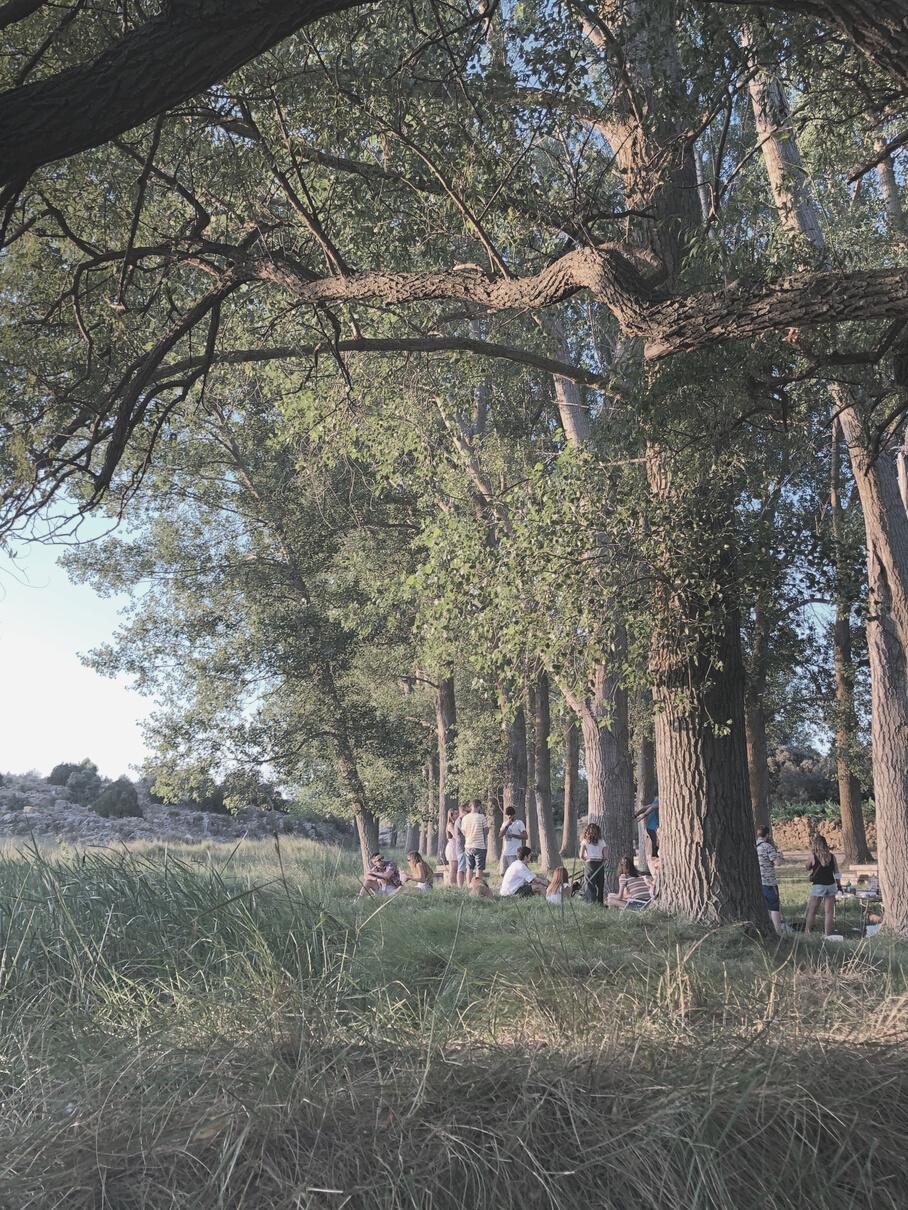
Being “unplugged” does not mean we are antitechnology. We encourage you to make good use of technologies that will help document and explain their experience. It is the responsibility of school faculty to ensure the group has a way to upload pictures and videos onto the blog. We ask that all groups bring a laptop computer, which will allow you to continually update the program blog and work on digital media projects.
You may want to bring a few simple, inexpensive gifts for your host family. Consider bringing:
Printed pictures of your family and friends since you wont have access to internet The best way to create connections with your two families is through pictures of your loved ones back home.
Something special from your hometown such as a baseball hat, T-shirt, map, snacks or prepackaged food.
Small gifts for kids are always welcome, including magic markers, pencils, small watercolor sets, toys or dolls
Board games that can cross cultures, such as UNO or SET also work well.
Your program fee covers all your expenses once you are in Spain except: personal spending money (souvenirs, snacks, toiletries, medications, shopping, airline baggage fee, etc.).

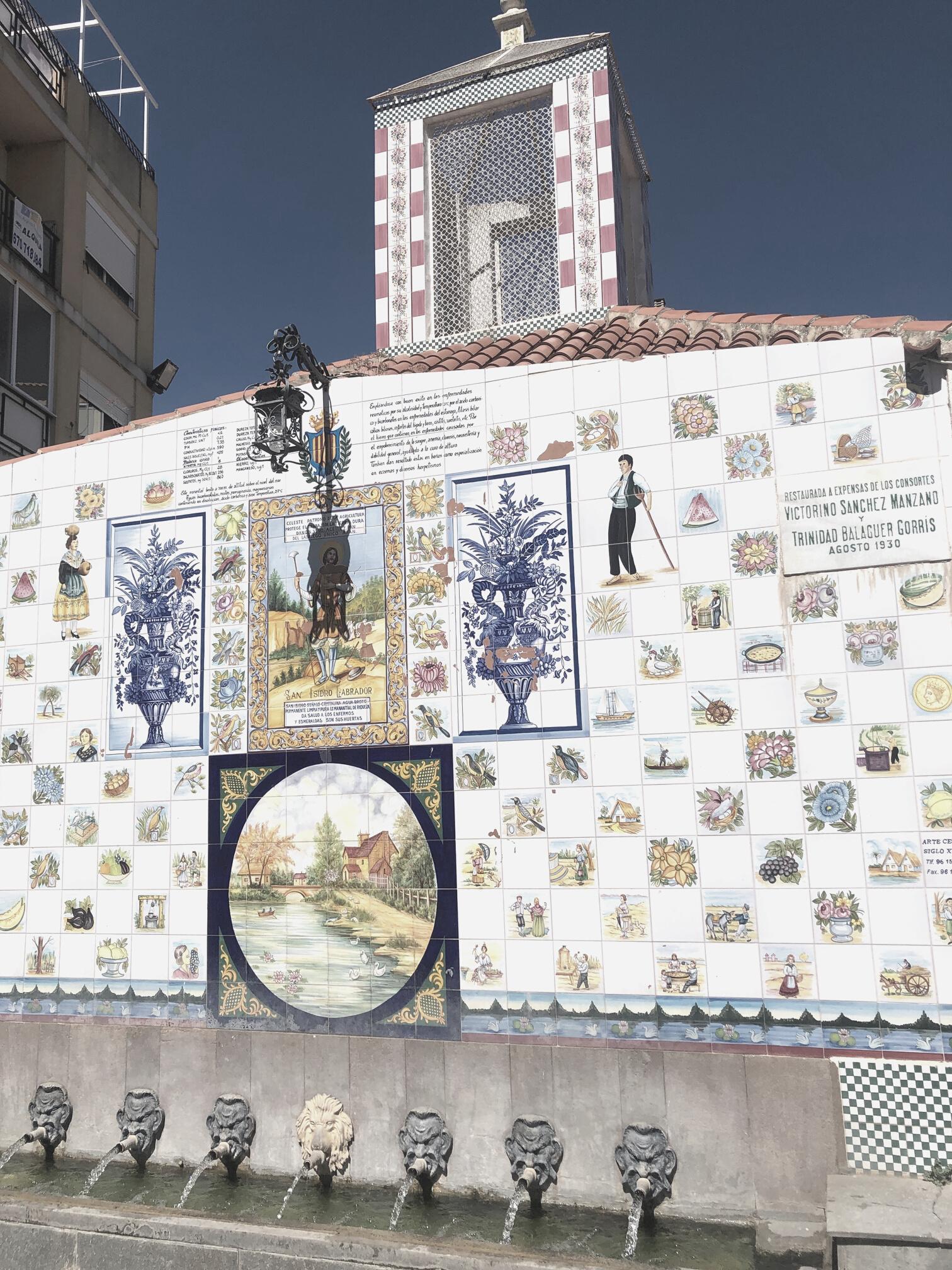
We recommend that students bring at least the equivalent of $100 per week in personal cash to cover basic needs, and more if you plan on buying a lot of gifts
Bring only crisp, new bills in small denominations. Any aged or slightly ripped bills will be rejected by the money changers or exchanged for a deep discount.
A credit card, which can be used to pay or withdraw money in Spain, can be brought as a back-up.

Do not bring traveler’s checks, are difficult to cash at local banks
There will be plenty of opportunities to buy gifts for friends and family; however, while staying in your host community we ask that you be mindful of excessive shopping. We find that continual shopping distracts everyone -LM students and local people alike -- from the overall experience. We recommend that you refrain from shopping until the designated time for that at towards the end of the program.

«I think this program has certainly changed me. I have become much more confident and feel more comfortable meeting new people and exploring other places and cultures. I also think I have a better conception of what is really important in my life».
-Charlotte Lombard- 17 years old. Participant in La Meridional Community Engagement Program.
Becoming a savvy and sensitive traveler is a lifelong process. The more you travel, the more you understand the challenges involved in navigating a different culture. At some level, most of us assume that the way we do things at home is the “right” way. When you are away from home, particularly in the Global South countries, it’s common to feel annoyed when things don’t go “right,” as you assume they should Remember that the majority of our assumptions are unconscious and deeply woven into our Western culture; we aren’t even aware of them until they are tested.
Punctuality. North America is a very time-oriented and deadline-driven place; many cultures are less concerned about time than we are
Privacy and Closeness. North America is an individually-oriented society that puts a premium on privacy and control over one’s personal space. The notion of personal space is completely foreign to many communal cultures.
Standards of Dress. Dress codes in the North America are much more individualistic and permissive than in the developing world Wearing clothes that honor the traditions of the host culture signals your respect for it.
Table Manners. The fact that we typically eat from individual plates in the West is part of the individualism of our culture.
Cultural differences are inevitably challenging and guaranteed to stretch you beyond your comfort zone. They are also what make travel fascinating, fun and enlightening.
In addition to cultivating your curiosity and learning as much as you can about the traditions, practices and values of your host community, here are some helpful guidelines:

Keep in mind that you are a guest And as a good guest, your job is to be respectful of your host Remember you are representing you family, your school, your country.
The more aware you are of your own cultural attitudes and biases, the more open you can be to someone else’s.
Try to keep an open mind. Suspend judgment when your cultural buttons are pushed. This can be very challenging but doing so will allow you to explore and appreciate the new culture you’re experiencing!
Observe and learn as much as you can about local etiquette. Etiquette applies to much more than the way you hold your knife and fork at meal time. It also applies to the subtleties of non-verbal communication, such as hand gestures, whether or not you look somebody straight in the eye, or what kind of physical distance you maintain with another person during respectful communication Understanding local manners is an important building block in the creation of a solid relationship with your host family and community.
A picture is worth a thousand words. Experts say that we form our first impressions of strangers almost instantaneously; and first impressions are difficult to alter. Did you know that only about 10% of first impressions are based upon what somebody says? We base the majority of first impressions on body language, the way a person carries him or herself.
Be flexible and communicate. Circumstances in mediterranean countries can change quickly and at the last minute – that’s part of the fun If you ever feel uncomfortable or apprehensive, don’t hesitate to talk to a LM instructor or faculty member.
Stereotypes flow in both directions. Remember that you are not alone in having preconceived notions about your host country and community. Many people you will encounter have already unconsciously formed an opinion of you as a foreigner Common stereotypes include the belief that all North American are wealthy – and that they are great professionals, but have poor cultural knowledge.
Be proactive when it comes to cultural differences. When you are curious and pro- active, you accelerate your learning exponentially. By doing so, you develop the ability to approach and solve problems in a whole host of new ways Placing yourself as a foreigner in a foreign land is a great opportunity to improve your cultural navigation skills, a critical component of being a collaborative global citizen.
Spanish is the official language throughout the country. Catalan/Valencian, Galician, Basque, and Aranese have legal and co-official status in their respective autonomous communities and (except Aranese) are widespread enough to have daily newspapers and significant book publishing and media presence. Nevertheless, Aragonese and Asturian are recognized but they are not official yet.
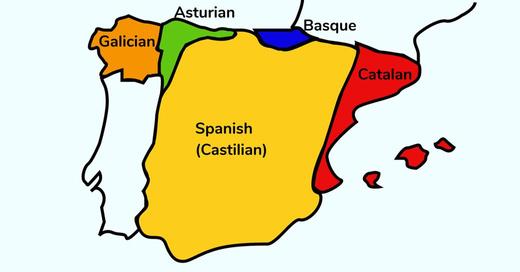
In Valencia you will have a golden opportunity to deepen your Spanish skills. Don’t waste it! Practice your conversational Spanish before leaving for Valencia. This will be time well spent.
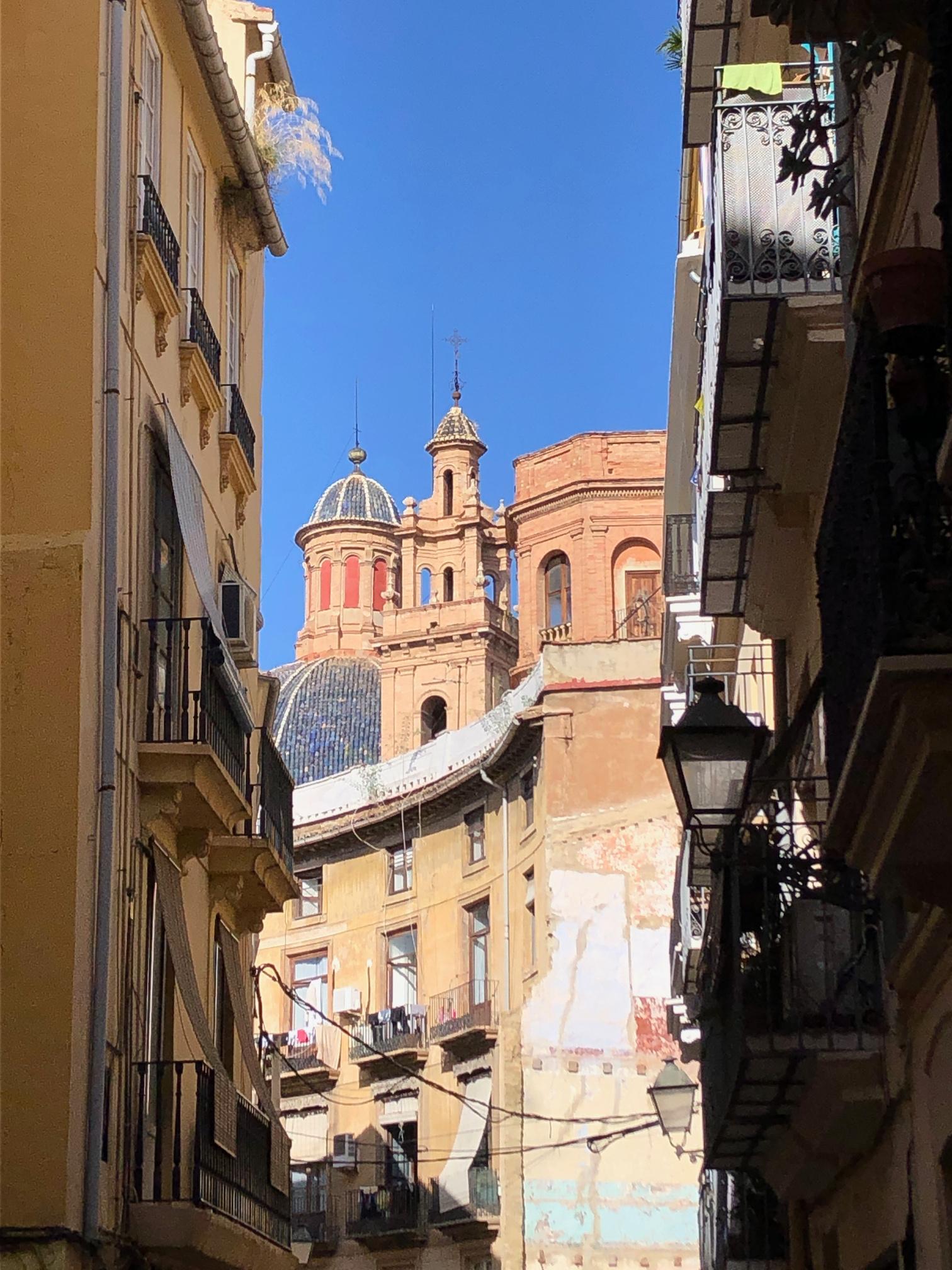
Speaking to Valencians in their native language indicates your respect for their culture
Early in the program we will have a language session to help you navigate your language immersion.
Getting ready for an abroad program requires more than simply packing your bags. In order to get the most out of your experience, prepare yourself mentally and emotionally by following these tips!
The more you learn about the county that you’re traveling to, the richer your experience! Check out the Country Resource (below). Buffing up on US and trip country current events is important for homestay and other in-country interactions.
Write a list about why you are traveling It’s a good way to explore your hopes and overcome fears that naturally arise from a new experience. Pack the list and if you’re feeling homesick, getting anxious or worried, or facing a challenge, refer to it and remind yourself of why you’re there in the first place!
As with any type of international travel, change is part of the plan Take some time to reflect: when things don’t go according to plan, how do you react positively? What do you bring to the table? Maybe you take a deep breath, maybe you walk away to take a break from the situation, maybe you seek out someone to talk to? Practice your personal tactics so you are prepared for unpredictable situations by being flexible.
Your LM group will be diverse, giving you the opportunity to learn new things and make new connections Before your program, push yourself to find common ground with people in your school or community who you might not have connected with in the past. Practice respect and leadership by using your voice to make a positive impact.
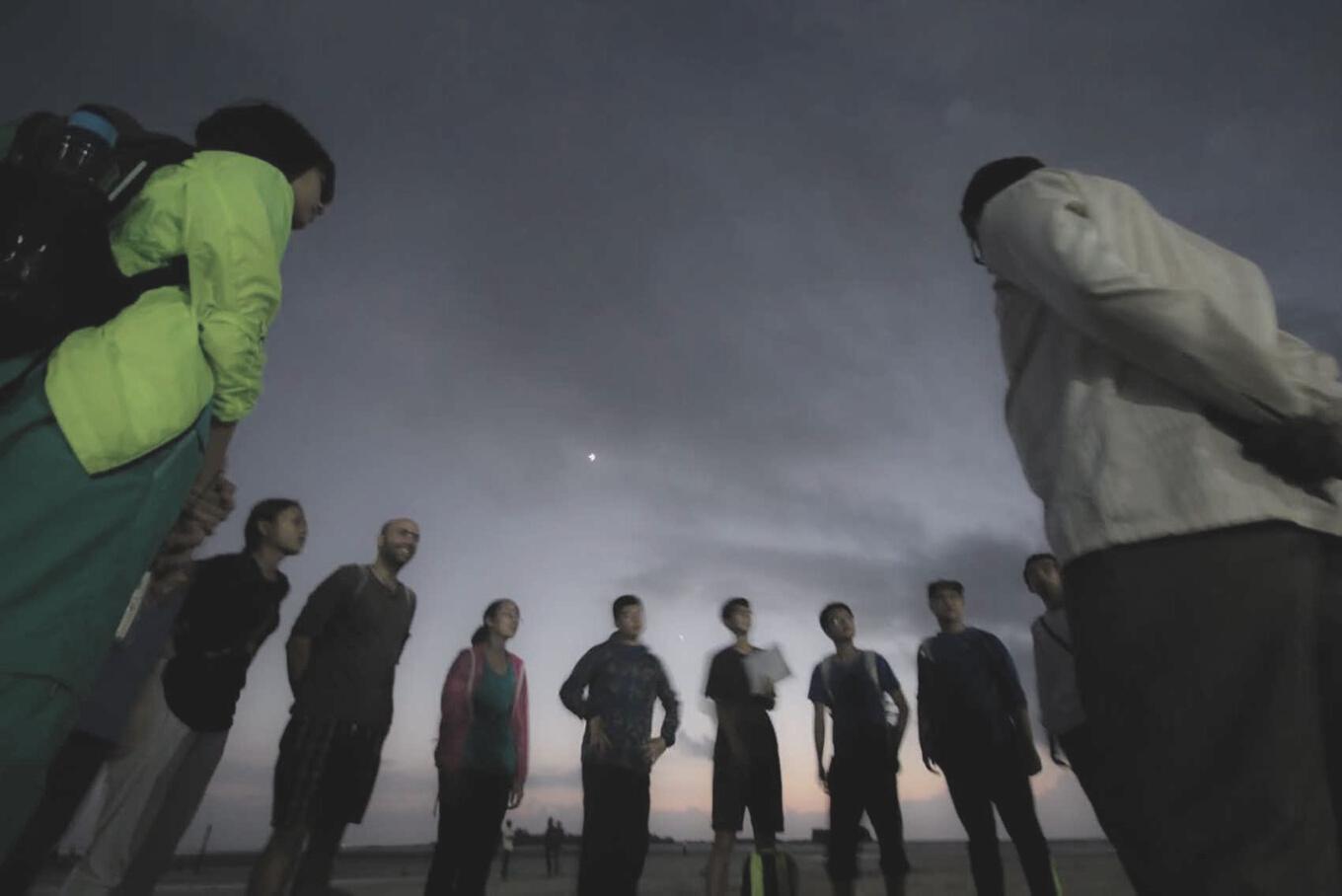
Consider your relationship with your phone!
LM, as many other organizations, follows the unplugged policy in their programs (see page 7), which in some participants could manifest feelings of anxiety, stress, or even loneliness. Refer to page 14 Packing check-list for some tips on how to cope.
Suggestions to titrate down your phone use as your program approaches are: to agree with your family and friends to have free-phone table time when having a snack all together; to leave it at home when you go out to exercise, or to track your usage and set goals to decrease use per day
Your mind is a powerful tool. Find your own mantra to help gain self-confidence when feeling uneasy. Equip yourself for when the going gets tough.
Practice checking in with yourself and recentering. Take some time to reflect, be creative, and take your individual self-care routine seriously We want to set you up for success!
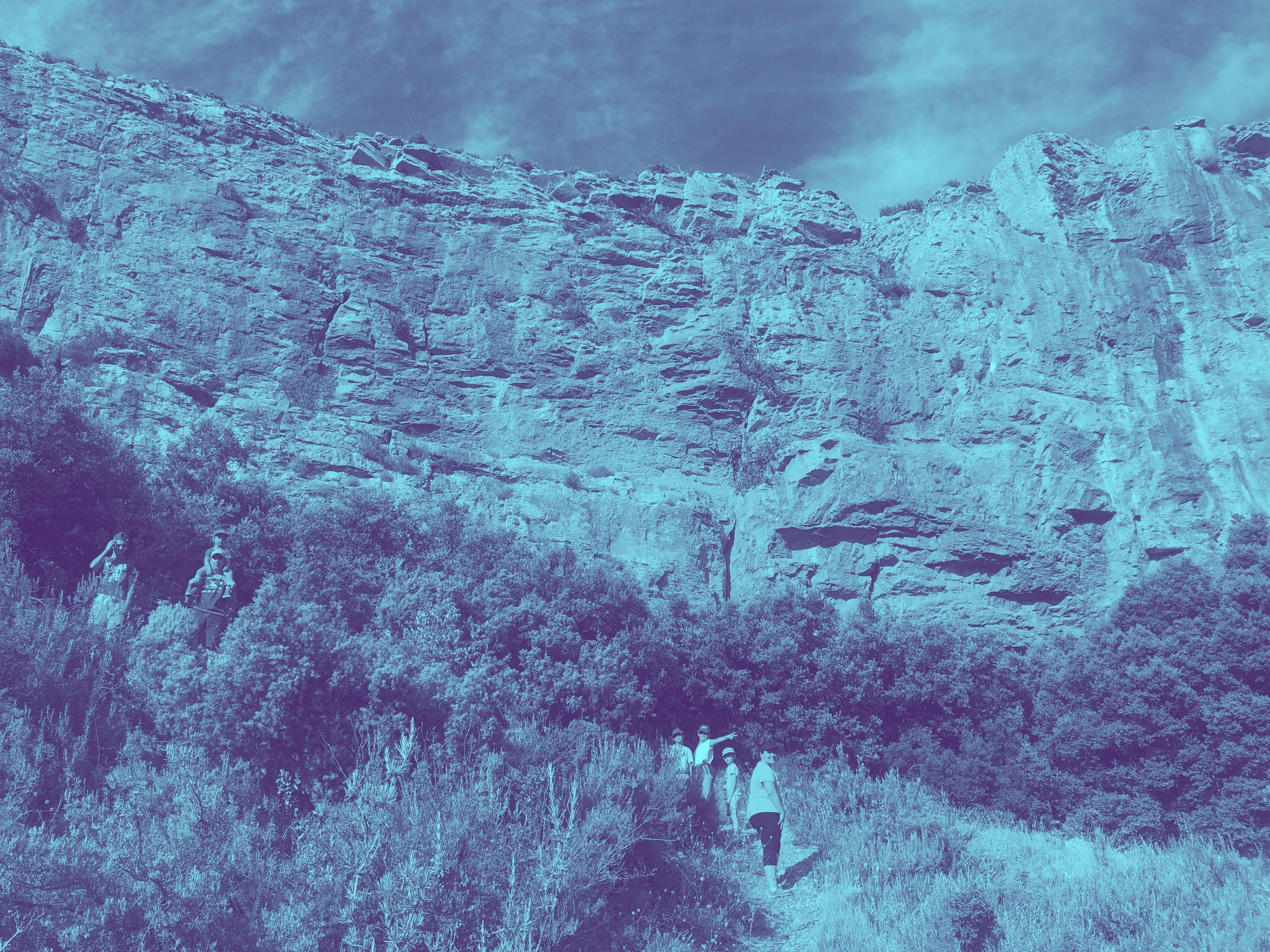
«I felt safe throughout the trip.
I was able to understand much better the difference between perceived risk and real risk, and I felt that this expelled my old ideal of security to reinvent a new concept of security that includes being outside my comfort zone»
–Ángela Aguero- 16 years old. Participant in La Meridional Community Engagement Program.
GENERAL TRAVEL WEBSITES
U.S. Department of State’s students abroad site
Canadian Government Safe Travel Planner
World Wide Weather
whatplug.info
SPAIN SPECIFIC WEBSITES
Country profile at OECD
CDC health Spain
Valencia Natural Parks
Valencia Region tourism site
BBC news Spain
SUGGESTED CULTURAL APPROACHES
READINGS
Driving over lemons, Chris Stewart
The Shadow of the Wind, Carlos Ruiz Zafón
Cathedral of the Sea, Ildefonso Falcones
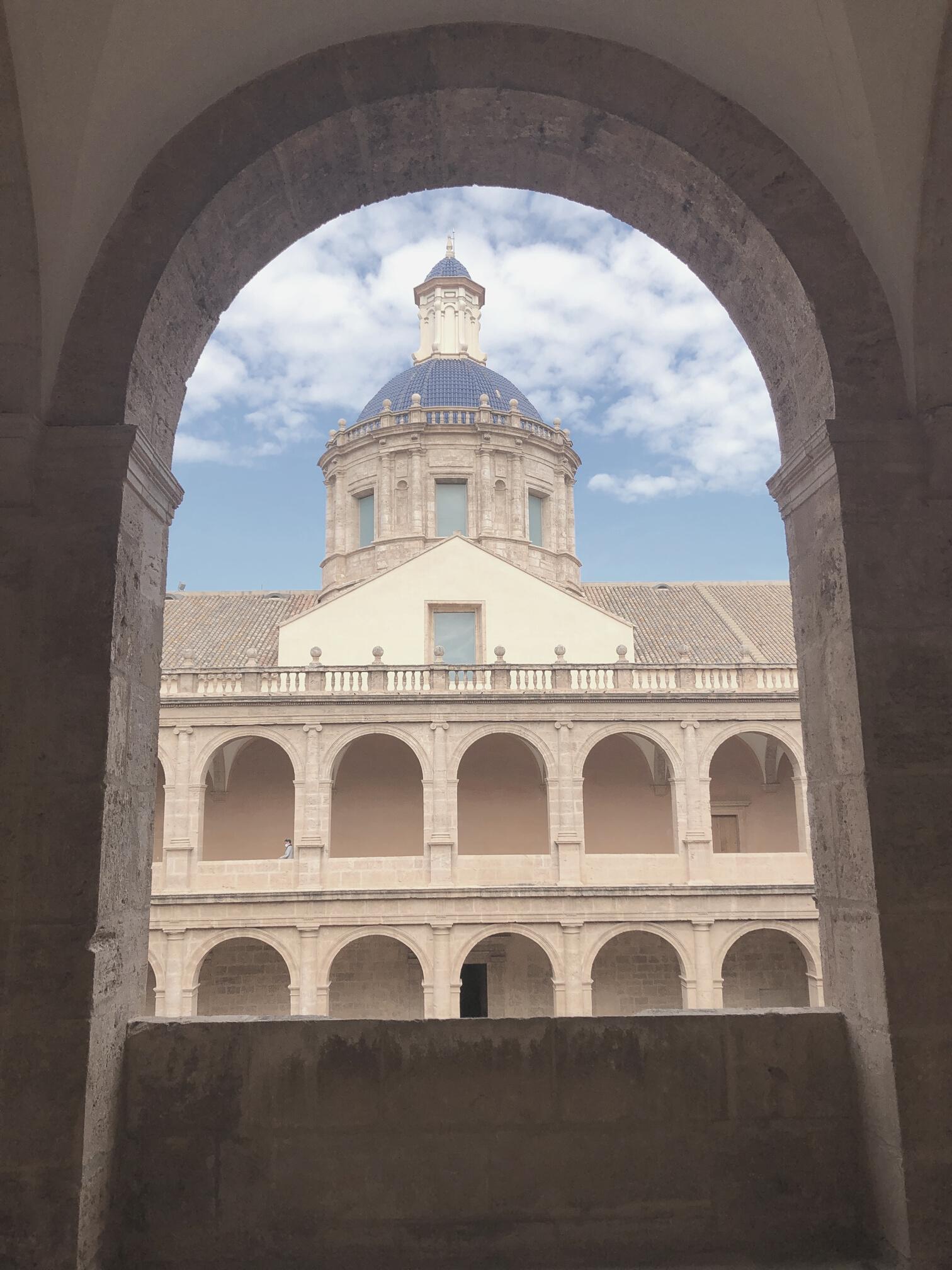
Ghosts of Spain, Giles Tremlett
The New Spaniards, John Hooper
Origin, Dan Brown
MOVIES
20000 Species of Bees (...especies de abejas)
Volver
Alcarràs
Holy Camp (La llamada)
Champions (Campeones)
Parallel Mothers (madres paralelas)
Winkles (arrugas)
Muchos hijos, un mono y un castillo
Buterfly (la lengua de las mariposas)
MUSIC
Spotify La Meridional Spain Playlist
RadioGarden: world wide radios
ART SPACES
National Modern Art Museum
El Prado Museum
GASTRONOMIC APPROACH
Please have a look to these guidelines, they are designed for a 7-10 days in Spain. Will help you pack efficiently ;-)
Educate yourself about the seasons and the weather in Valencia. Visit worldweather.org

Pack as few items as possible. It is much easier to travel and stay organized if you pack lightly. Think modesty, comfort, dark colors, and layers when choosing which clothes to bring
Note to Parents: Please be sure to discuss appropriate clothing with students. We ask students to:
o Wear closed-toe shoes (tennis shoes are OK Teva's are not) and either long pants, capris or skirts below the knee-level (please no yoga pants or other tight- fitting clothing). We find that closed-toed shoes and clothing that covers the legs greatly help us reduce sunburn, insect bites and cuts.
o Wearing discreet clothing is a way for students to also show respect for local cultural sensitivities. We are fine with students wearing more casual clothing inside the hotel, such as shorts and flip-flops, but we definitely want everyone to wear closed-toed shoes after nightfall, for safety reasons.
o Most of our schools are asking students not to pack yoga pants, short shorts, tank tops and other tight-fitting clothing to avoid issues once overseas
Do not put anything of value in your suitcase –theft in the baggage process at the airport is not common, but can happen.
In the event your luggage is delayed for a few days, pack at least one change of clothes and an overnight kit on your carry-on luggage.
YOURMEDIUM-SIZEDAYPACK(Carry-On)
Tobeusedasairplanecarry-onandfordaytrips.
ITEM GOTIT!
YourValidPassport
CopiesofPassport(x3)
Copy page where photo appears Leave one copy with your family, give one to your teachers and bring one copywithyou.
SpendingMoney


Phone,chargerandadaptor
StudentID
WaterBottle
Prescriptions/Vitamins
$150-$250recommended.
tobeusedonlyinairports
If you have a student/school ID card, bring it! These proveusefulwhenseeingsitesthroughoutValencia
Shouldhold1quart/liter Nobikebottlesorcamelbacks,please.
Anymedicationsorvitaminsyouhavetotake
SetofClothes/Toiletries
In case baggage is delayed en route to your destination, make sure that you pack a change of clothes, toothbrush and essential toiletries (make sure they are 100ml in a quart-size zip-lock bag to go throughairportsecurity)
YOURWHEELEDSUITCASE/BIGBACKPACK/DUFFEL/CARGOBAG
(Checked-BagorLargerCarry-On).Youneedtobeabletocarryyourownstuffforatleastahalfmile.
ITEM GOTIT!
Raincoat(1)
Coat
Fleece,SweatshirtorHoodie(3)
Hooded, lightweight, waterproof. For hiking and rainy days.
Temperaturemayrangebetween2°Cto22°C (35°Fto71°F).
Bringoneofthemwithyoufortheplane.
Long-SleeveShirts(2)
One lighter, one warmer. Designate one as a “hands-on” shirt that may be damaged. One quickdry or rashguard will be best especially for long walking days under the sun.
AdventureT-Shirts(3-4)
We recommend “quick-dry” T’s and shirts you don’t mindgettingdirty.PleaseincludeyourLMt-shirtinthis number! You will receive it prior to your departure and willwearitonthetraveldays.
EverydayT-Shirts(3-4)
Towearintheeveningsandoncitydays.
Shorts(2) Itmaygetwarmaroundnoon.
LongPants(4)
“Nice,ButNotFormal”Outfit(1)
jeansorcasualpants.
Forgoingouttodinneronthelastnightandeveningsin town.
LightweightPajamas(1)
Underwear
Socks(8Pairs)
SunHatorBaseballCap
BathingSuit(1)
Light-WeightHikingBoots(apair)
Forhikingandwalking
ComfortableWalkingShoes(apair)
Towearforshorthikes,excursions,andactivities.
We will be on our feet a lot in the program. Happy feet arethekeytobeingahappytraveler!Thesecanbeyour sneakersorsupportivesandals.Flip-flopsandCrocsdo notcountaswalkingshoes!!
Flip-flopsorCrocs(apair)
tobeconfortableinyourhotelroomandhomestay
YOURWHEELEDSUITCASE/BIGBACKPACK/DUFFEL/CARGOBAG
(Checked-BagorLargerCarry-On).Youneedtobeabletocarryyourownstuffforatleastahalfmile.
ITEM GOTIT!
Toiletries
Bring in travel size, and store in zip-lock bags or other liquid proof compartment Toiletries can be replacedasneeded
SpareEyeglasses forContactWearers
Beach/BathTowel(1)
TravelMedicalKit
BugRepellant&After-Bite
SunBlock,HandSanitizer&LipProtection
Short on space? Quick-dry towels from outdoor or adventurestoresworkverywellandpacklightly!We recommend a towel large enough to wrap around yourbodyortolayonatthebeach
Your LM leader will have a comprehensive medical kit with the essentials, but please bring an assortment of basic supplies and any medications thatyoumaytakeregularly
SPF 50 . Leaders will have hand sanitizer, after sun lotion and bug spry as well, but please, bring your ownsupplyforpersonalsafety
GEAR/MISC.
ITEM GOTIT!
Sunglasses
WatchwithAlarm
It’sbrightouthere!
Or small travel alarm clock. You will need an alarm device to wake you up since you won’t have your phone.
YOURWHEELEDSUITCASE/BIGBACKPACK/DUFFEL/CARGOBAG
(Checked-BagorLargerCarry-On).Youneedtobeabletocarryyourownstuffforatleastahalfmile.
Note:TheseAreOptionalItems...CustomizeYourComfortsToYourOwnNeeds!
ITEM GOTIT!
PocketSpanish-EnglishDictionary
Camera,Chargerandadaptor
Mostofpastparticipantslovetobringdisposable photocameras,polaroidorfisheyefilmcameras
ProteinBars
Powerbars,Lunabars,Cliffbars,Odwallabars,etc. Recommendedespeciallyforvegetariansorpicky eaters!
Note:ReflectOnPersonalInterestsAndCopingMechanisms. WhatSmallItemsCanYouBringToPassTheTimeWhenTheGoingGetsTough?
ITEM GOTIT!
TravelGames/Card

Therewillbedowntimeandit’sfuntohave somethingtodoorplay
ReadingMaterials bringabook;-)
Arts-N-CraftSupplies

SmallNotebook&Pen
SmallMusicalInstrument
YogaMat/EssentialOils/MeditationMaterials
Adultcoloringbooks,friendshipbraceletsupplies, etc.
LaMeridionalwillprovideareflectionjournalforthe learningsessions,butyouarewelcometobring your personaljournalalso.
Anyharmonicaorukuleleplayersoutthere?! Valenciansaretalentedmusicians,let’sjam!
